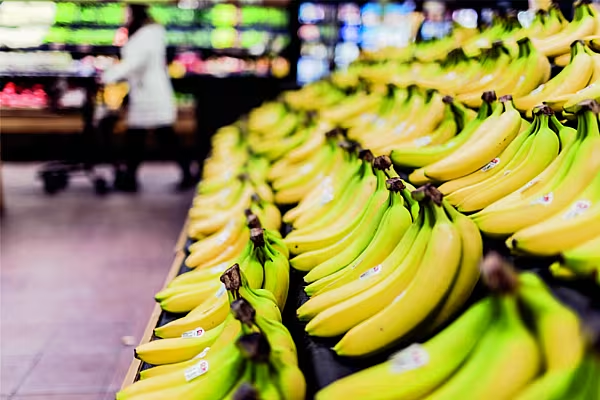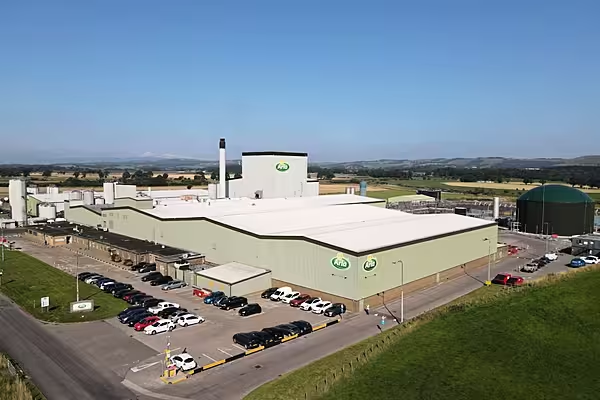Aldi and Lidl are raising the price of some staple items in the UK to levels that make them no cheaper than the country’s main supermarkets – an about-face by the two German discounters after their low prices wreaked havoc on the UK grocery industry.
The German chains have started charging more for milk, and Aldi has increased the price of bananas, according to Sanford C. Bernstein research. Milk, the focal point of a 2014 grocery price war, now costs about the same everywhere.
The increases for two of the industry’s most frequently purchased items show that the German chains aren’t immune to the pressure of soaring commodity costs and a weakening pound, which are putting a squeeze on profitability across the industry, as suppliers seek to recoup higher expenses. It signals that years of unrelenting deflation may be nearing an end, according to Bernstein analyst Bruno Monteyne, bringing relief to the likes of market leader Tesco Plc.
“It’s a watershed moment,” Monteyne said by phone. “It just goes to show the amount of pressure Aldi and Lidl have been put under by the large supermarket chains.”
Aldi said that its shoppers will always pay the lowest prices, adding that milk and bananas can’t be bought elsewhere for less. A five-pack of Aldi bananas costs £0.72, £0.08 cheaper than at the nearest competitor, it said.
According to Bernstein’s Monteyne, the discounter has raised the price of bananas by about 6% since September, to £0.72 a kilogram. Based on weight, that’s more than at its three biggest established rivals – Tesco, J Sainsbury Plc and Wal-Mart Stores Inc.’s Asda – he said. Aldi and Lidl both recently raised the price of a four-pint bottle of milk to £0.99.
A Lidl representative declined to comment on price, saying only that the company will press ahead with a £1.5 billion expansion plan.
The discounters may stand to suffer more from higher commodity costs and sterling’s Brexit-induced weakness than their established competition, according to Andrew Gwynn, an analyst at Exane BNP Paribas.
“Because they don’t spend as much on staffing and their overheads are lower, a greater proportion of their selling prices are directly linked to the cost of food,” Gwynn said.
The British public has become particularly sensitive to price swings in the wake of the Brexit vote, exemplified by last month’s Marmite pricing dispute between Tesco and Unilever.
For more than a decade, the discounters’ no-frills approach and low prices have won them an increasing share of Britain’s £169 billion grocery market, causing bigger chains to retaliate by cutting prices on everything from bread to detergent. Aldi and Lidl now control more than a tenth of UK grocery spending between them and, on average, their prices remain at least 10% lower than the cheapest of Britain’s main supermarkets, according to Exane BNP Paribas.
The narrowing price gap may help explain a slowdown in the growth of the German discounters, which recorded their weakest sales growth in the UK since 2011, according to the latest monthly data from researcher Kantar Worldpanel. By contrast, Tesco is seeing a revival in business.
The increase in the price of milk is a symbolic reversal. As Tesco began to lose an increasing amount of market share to the discounters in 2014, the grocer slashed the price of a four-pint carton of milk by £0.39 to £1. Aldi and Lidl responded in kind with their own price cuts to maintain a gap that has now disappeared.
“Milk is a bit of a bellwether product,” said Steve Dresser, director of consultancy Grocery Insight. “Milk and bananas are both very high-volume lines, and if you get to a point where you’re selling them at a loss, it starts to work against you very quickly.”
News by Bloomberg, edited by ESM. To subscribe to ESM: The European Supermarket Magazine, click here.














